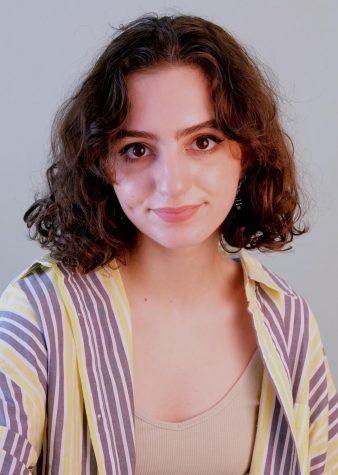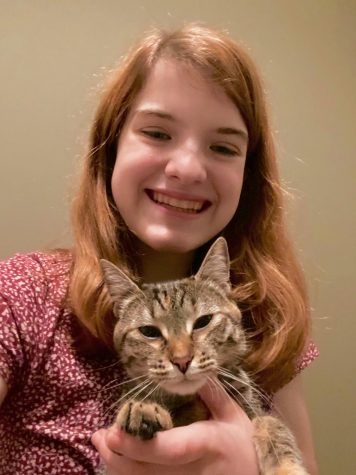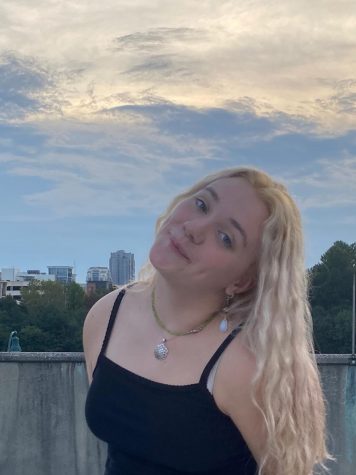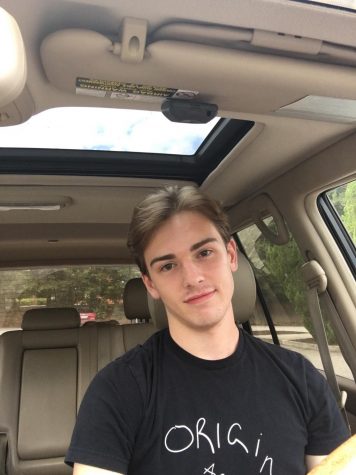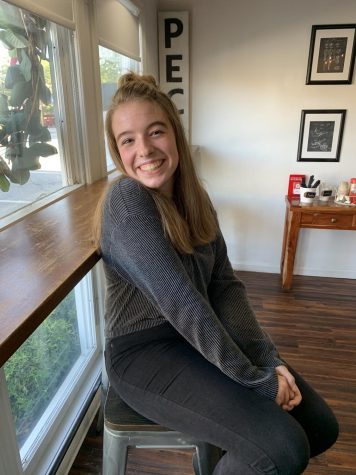2020 Visions: So Long, Farewell, Auf Wiedersehen, Goodbye [END]
Photo courtesy of Shay Martin.
Seamus Martin, Carson Ankeny, and James Hardy (’21) at Freedom Park following Joe Biden’s victory.
January 29, 2021
[Editor’s note: And thus, with the following article, our four-part ‘2020 Visions’ series draws to a close: a series as lengthy as it is turbulent, but one that captures the year 2020 nonetheless. Thank you to our staff writers for their hard work in conducting interviews, our student interviewees for their insightful quotes, and our editing team and adviser for compiling the final articles. For other installments of ‘2020 Visions’, see here. Happy reading!]
2020 heaved its last, shuddering breath with a ball drop—in a desolate Times Square, save for select special guests: healthcare workers, singer Andra Day, and hordes of Planet Fitness tube men, whose furious flapping during “What A Wonderful World” solidified the event’s dystopian vibe.
But, evidently, dystopia was an apt reflection of a year that consistently teemed with calamity and political turmoil—the setting of a tumultuous presidential election in the US, as well as one of the most rampant, widespread pandemics of the past 100 years.
“You know the movie 2012 ?” said Jonah Bosselmann (‘22), referring to the 2009 disaster film about the end of the world.
The end of the world, indeed: for some, 2020’s incessant brutality made it the new “2012.” But CCHS students, subjects of the annus horribilis’s…horribleness, bid 2020 adieu as survivors, with their own astute reflections in hand.
So, What Was 2020?
“The first presidential debate—that’s 2020,” said Deanne Sharpe (‘22). “It was just so chaotic and all over the place and a catastrophe in itself. But you know, there [were] some moments that I guess made people laugh, maybe because it was stupid.”
“[2020 was] the video where someone sets a turkey on fire and then sets themselves on fire,” said Spoorthi Satish (‘24), alluding to this year’s deep-frying Thanksgiving craze, which resulted in some less-than-fortunate incidents.
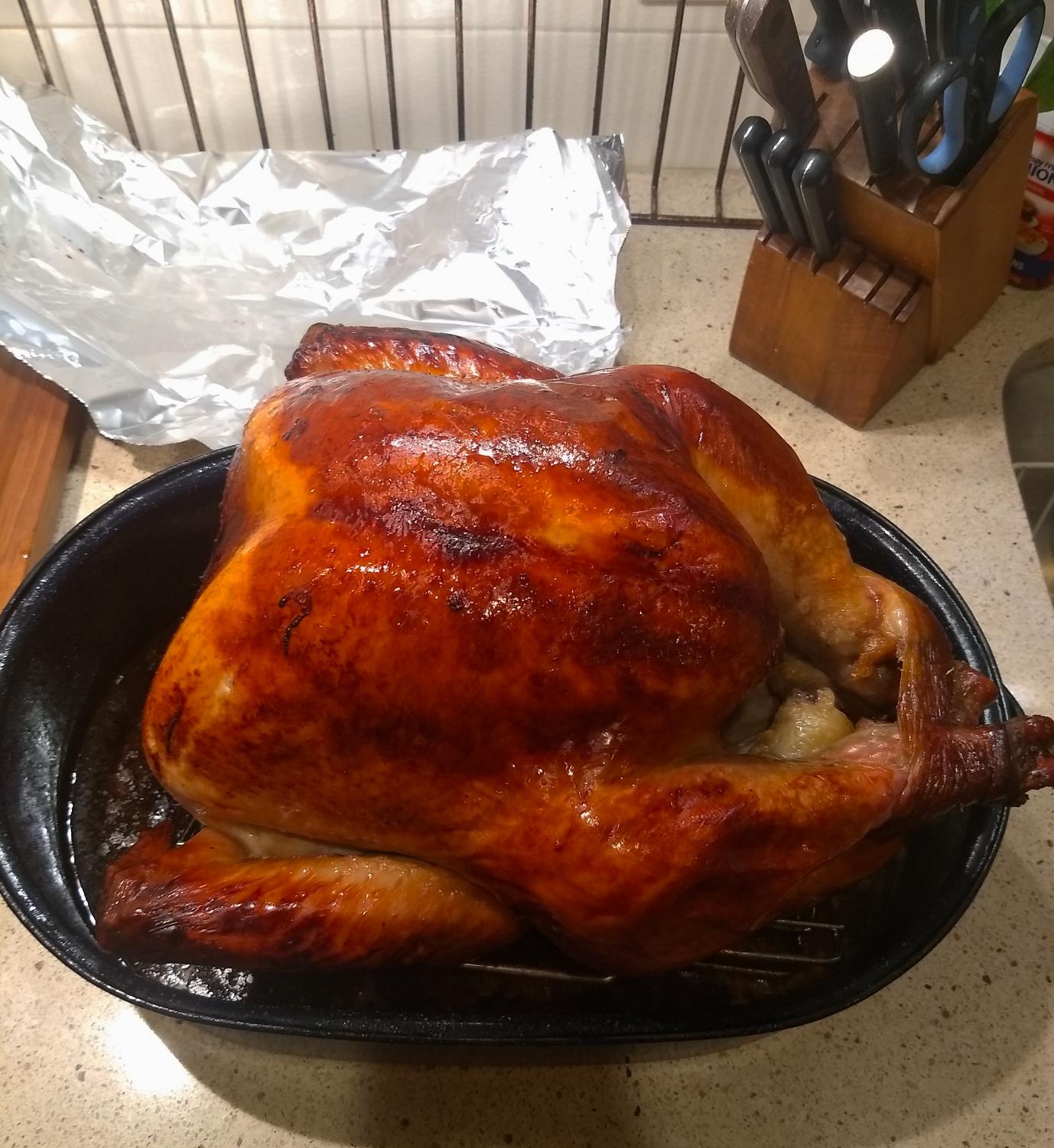
“[2020] is my Thanksgiving break,” said Jahin Zashim (‘23), “It’s just, you know, like the whole break I told myself, ‘I’m gonna be productive. I’m gonna do all my work ahead,’ right? By Sunday night, I’m like, ‘Wait. What did I do in break?’ […] and I feel like that’s how 2020 was. So I was like, ‘I’m gonna do this! I’m gonna be this! I’m gonna be like a super genius!’ Like Isaac Newton invented calculus in quarantine.”
Yet in contrast to Newton’s surfacing genius during the 1665 bubonic plague quarantine, the 2020 coronavirus quarantine was prefaced with an event as shocking as it was devastating, setting the tone for a year that would remain interlaced with tragedy.
“[2020’s defining moment was] when Kobe [Bryant] died,” said Fernando Aguilar (‘23). “I feel like from that point forward, everything started to go downhill. We would just always have something to be sad or worried about.”
“The George Floyd murder was definitely a turning point for me, and I think [for] a lot of people,” said Avaye Dawadi (‘22). “That definitely sums up the tragedy of 2020.”
George Floyd’s death and the subsequent rekindling of the Black Lives Matter movement was a major catalyst for activism among teenagers.
“The whole Black Lives Matter movement, or the—I wouldn’t say reshaping—but the reincarnation of it earlier this year […] reshaped this past election, and I know more people came out and voted. And we got the response that we wanted,” said Jordan Beckford (‘21).
The movement would also give rise to a growing generation of politically-conscious students—particularly Sania Hassan (‘20), who critiques the US’s capitalist ventures.
“After the election, I saw these memes about the movie Parasite,” said Hassan. “And I feel like those memes kind of sum up the year because […] we still have capitalists running the country and all that, but Parasite won [Best Picture at the 2020 Oscars], and I feel like that was so exciting for people. They were like, ‘Wow. It’s not even an American movie, and it’s the top movie because we love the meaning.’ But when you look at the real picture [in the US], it’s the complete opposite.”
For others, the defining moments of 2020 were more personal.
“I think hanging out in a parking lot, six feet away from all my friends on a summer night eating takeout sums this year up,” said Katie Mogilski (‘21). “Keeping relationships requires effort now, and it really shows people’s priorities. 2020 really showed me what’s important in life: my relationships.”
In 2020, fostering relationships took on a different meaning, as social distancing procedures confined everyday contact to primarily virtual settings. Nevertheless, students found ways to make do with their circumstances.
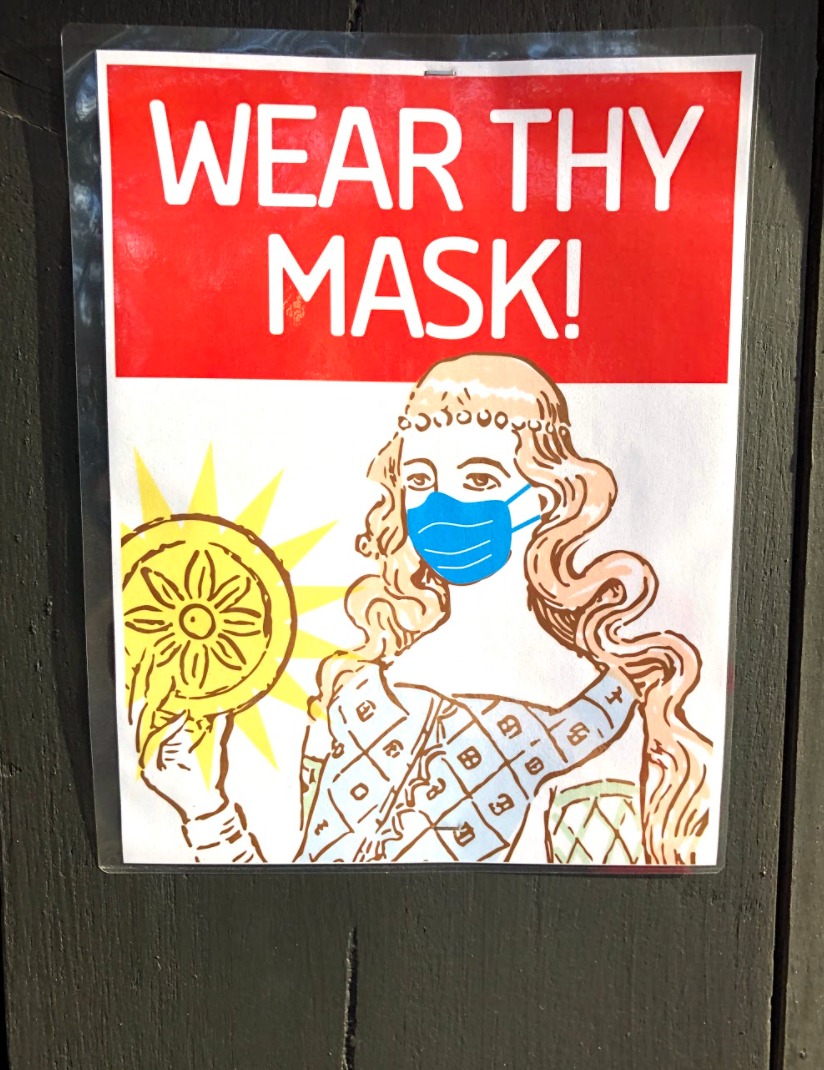
“Being on the phone with my friends late at night [defined 2020],” said Colette “Coco” Bradford (‘23). “Like, we’re on the phone and are all doing homework or laughing or thinking about Christmas or like, whatever the gossip is because that kind of togetherness and stuff is just so nice. It’s nice because we can’t have a sleepover because that’s not safe. But we can be on the phone laughing and be getting ready for bed together.”
“It’s all been kind of about online community,” said Toby Russell (‘23). “Talking with friends and then like, playing Among Us with friends [defined the year]. […] You know, this year is kind of online.”
But the pandemic’s pervasiveness would prove to be an uncompromising force, dominating the entire year.
“Most of my human interaction has been at work,” said Luca Antinozzi (‘22), recalling a particular shift at his job. “That [defining 2020] moment would have to be the old lady on aisle 14 who lifted her mask off of her face in order to sneeze.”
A Virtual Silver Lining
From Minecraft Chamblee to faceless classrooms, virtual school (another brainchild of the pandemic) was largely considered a jarring introduction to the fall semester, as well as routinely condemned for zapping motivation and furthering mental health problems.
“Like, things I was looking forward to for online classes?” said Bosselmann. “Yeah, I can’t really say too many.”
“I look forward to when they dismiss the class,” said Beckford.
Still, when looking back, most students found that a virtual curriculum had its highlights, particularly when teachers themselves were invested in creating invigorating lesson plans.
“There aren’t a lot of things I look forward to in the week with virtual classes, but I always enjoy Ms. Kaspar’s AP Gov class,” said Sophia Shi (‘24). “She makes me feel comfortable and makes class interesting.”
“I enjoy Mr. Welser’s class the most. I like talking in groups about the discussion questions, and we always have actually fun conversations and debates in class,” said Alek Dyer (‘23).
Others looked forward to witnessing their home and school lifestyles mesh.
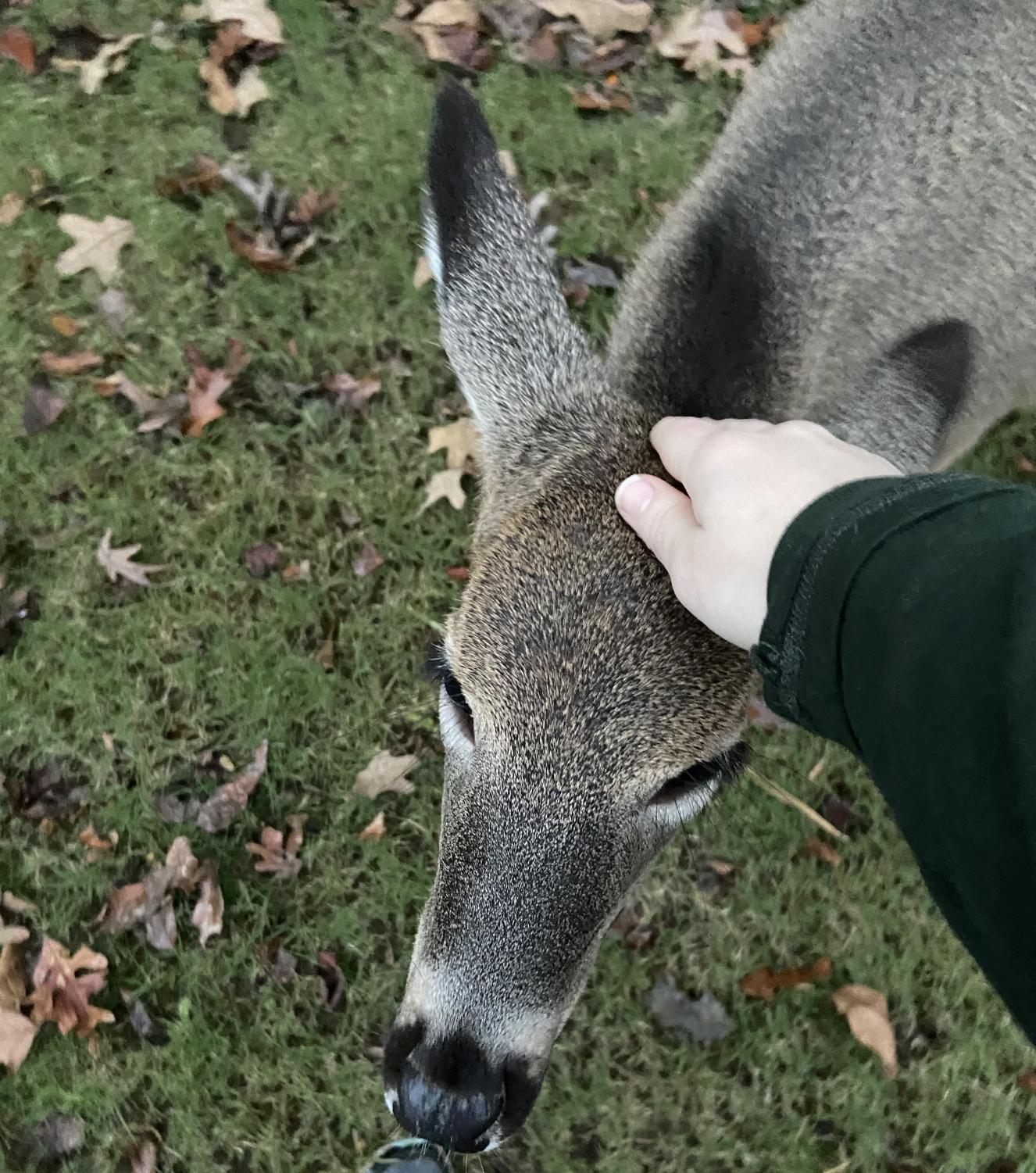
“The highlight for me regarding classes specifically was being able to hang out with my dog during lectures, which I have been hoping to do since like, third grade,” said Antinozzi.
“I don’t have to get out of bed every day,” said Satish.
But as second semester dawns, many students find themselves lamenting the loss of a virtual learning highlight they cherished: the shorter schedule.
“One good thing that they’re unfortunately changing [in 2021] was ending early at 1:50. I thought that was really nice. You’re staring at your screen for hours, and it’s really draining your eyes, and just having the shortened time helps a lot,” said Victor Lim (‘21).
“At one point during the normal school days, I would just get like, so bored and then I would lose focus,” said Zashim. “I would need a break, but now it’s like, you know, a shorter week, shorter schedule, so I have better […] focus in my classes.”
“I like how teachers let us out early like, if they’re done, telling us what they have to do in the 10 minutes in the beginning of class, and we can just let out and do things,” said Ashley Michel (‘21). “In school, normally, they’d be like, ‘The bell does not dismiss you, I do,’ and we had to wait ‘til that big loud bell, but now it’s like, the opposite.”
This development allowed students to find extra time for themselves in their normally busy schedules.
“I honestly dislike school, so it’s hard to look forward to anything. […] I’ve lost motivation to do my assignments and I’m doing the same routine every day, and I’m just tired,” said Emma Hall (‘22). “So the highlight of virtual learning is finally being able to focus on my mental health and my sleep schedule, since with regular school, I was so stressed every night I could barely sleep.”
Fortunately, for students, a highlight that is persisting in 2021 as long as virtual learning continues are asynchronous Wednesdays.
“Wednesday [is] like my free day, although sometimes I don’t use it wisely,” said Esther Williams (‘21). “It’s like, I’m able to kind of catch up. It gives me a break from school, and I can just do the work that I need to do.”
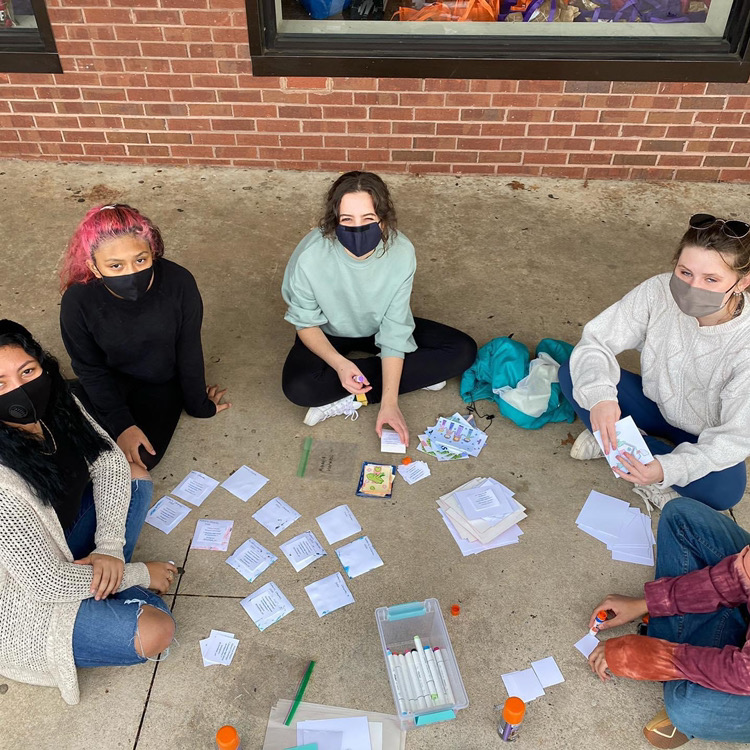
“That’s actually when I get the most work done,” Sharpe said in agreement.
Although the general premonition surrounding virtual learning is that it hampers social connection, this was not always the case for CCHS students.
“I can choose who I’m connecting with,” said Russell. “So like, you know, I can choose what people I want to hang out with. I’m not saying that I’m like, choosing not to hang out with people, but I can hang out with my friends, even if I don’t have a class with them or something.”
This connection also became international as the year progressed. As German V and VI students prepared for the annual DSD II exam in December, they were able to attend Zoom sessions with a teacher who lived in Germany as a way to hone their skills.
“Recently, we had this teacher in Germany who just graduated college, and she’s been a student-teacher in our German class,” said Megan Woo (‘21). “So that was something different that I’ve been looking forward to.”
Even so, others found that the virtual world was no replacement for traditional social interaction.
“I was doing color guard with marching band [over the semester],” said Bradford. “That was lovely. I looked forward to it every week, and the last week [there], I was literally about to cry because […] it’s so nice to see people. It’s so nice just seeing people that I don’t know super well or people that I don’t know at all because I just love seeing people in real life, and I didn’t realize how much I missed it until we started.”
Sports! Sports! Sports!
Bradford’s participation in color guard cemented her presence at Chamblee’s football games in the fall, where she observed some of the few in-person activities that took place that semester.
“I felt like, definitely marching band was being safe because Mrs. Marin made sure that we were being safe,” said Bradford. “I didn’t think football was safe at all, I’m not gonna lie. […] However, there’s nothing I could do about it. So for some reason, I was able to let it go at that point.”
“I went to the home games because I was in the band,” said Kendall Young (‘21), who was on the field with Bradford during the games. “That was really fun, being able to actually see us win.”
That’s right—win. As if 2020 could not get more unpredictable, Chamblee’s football team, notorious for their previous losing streaks, pulled off a winning season this year.
“Wait, this year?” said Williams.
“That’s surprising,” echoed Satish.
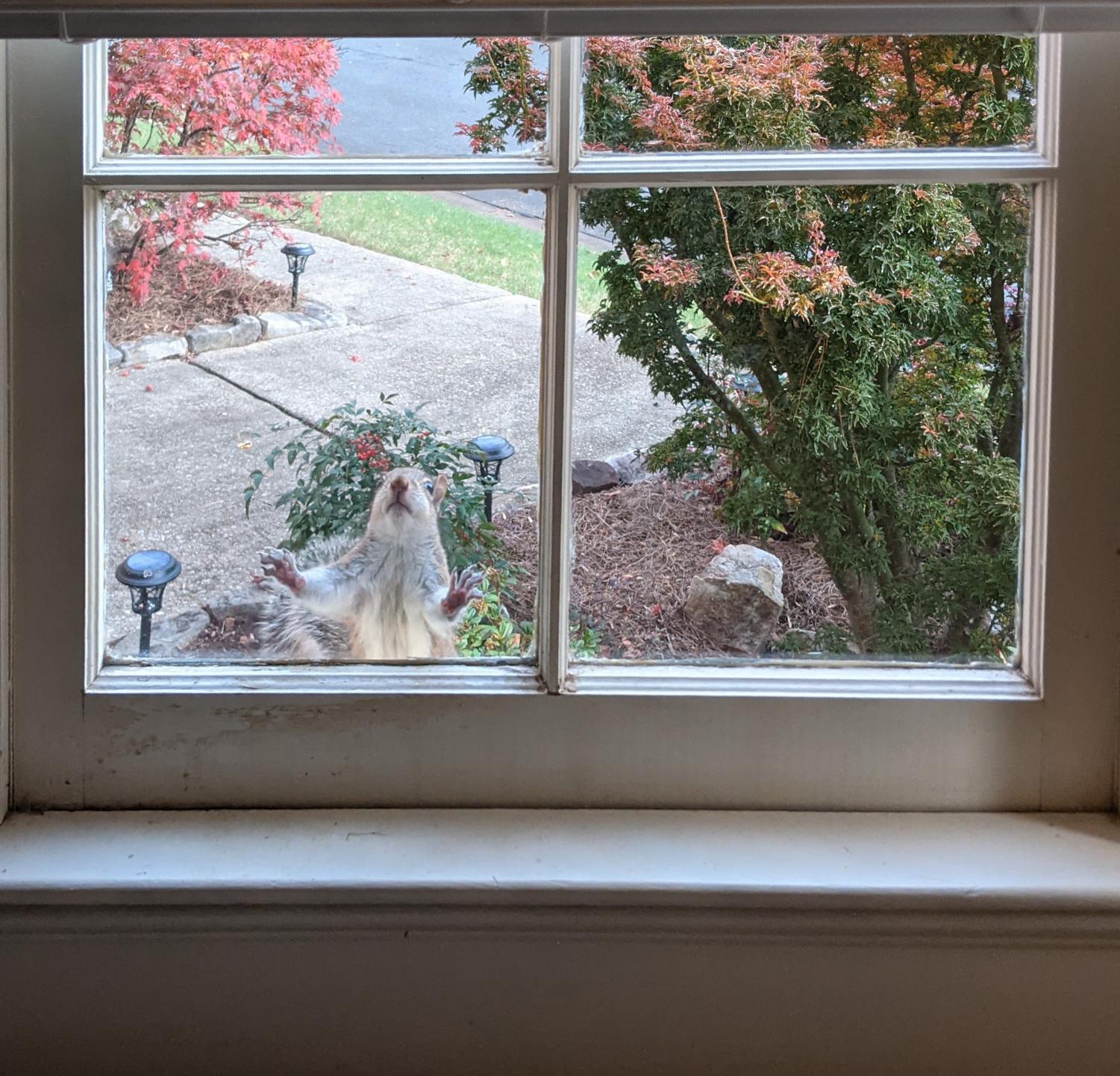
“Can you imagine? Their only winning season is when no one can witness them,” replied Williams.
While it is true that the crowds at football games diminished due to COVID-19, some students still made the effort to attend games, ensuring that Chamblee’s wins would not go completely unobserved.
“I was really happy to see the team win,” said Myles Allen (‘22). “Like you said, they haven’t had a winning season in a long time. I made the last game of the season, and I also really liked the energy that was there from the crowd.”
“I went to the last game with my sister, Stella, and we screamed our heads off! We won 54-0!” said Mogilski. “It was really heartbreaking to have no student section and flag leaders, but I’m really glad I got to hear the marching band play ‘Sexy Tuba’ and finally be able to scream, ‘Seniors 2021!’”
Even those who didn’t attend games were indirectly exposed to Chamblee’s triumphs.
“I know a great football player on the football team, who I think carried the football team to glory. And so I vicariously follow the Chamblee football team through him,” said Dawadi, referring to Will Burton (‘22), “kicker extraordinaire,” as he puts it.
“All the Lakeside kids were like, ‘Oh dang, Chamblee beat us.’ And like, they beat Lakeside by a huge margin. So I was like, ‘Okay, Chamblee!’” said Joanna Louis-Ugbo (‘22). “But that was so fun to hear, […] like you still have that school spirit of having that football game win.”
But a revitalized school spirit was not as impactful for others.
“It was kind of just like, ‘Cool, that happened,’ and then [I] went about my day,” said Dylan Hairston (‘23).
For fans of sports in general, the year was also packed with some notable moments.
“I’m a huge LeBron fan, so I’m very proud that, you know, he got another ring. So that was a highlight of this whole quarantine, I guess—LeBron got another championship,” said Beckford.
“I’m a pretty big fan of Tottenham in the Premier League, so my brother and I have been watching their games,” said Shi. “Son [Heung-min] scoring against Liverpool was really cool, even though Liverpool ended up winning with a last-minute goal.”
“Something that made me feel like a fan again was when the Denver Nuggets came back against the Clippers, and Patrick Beverley finally shut up,” said Dawadi. “What I lost is definitely like, being able to go to games. I mean, hear the crowd and everything.”
Fans weren’t the only ones that lost their in-person game experiences. Antinozzi, a Chamblee wrestler, mourned the loss of participating in his wrestling season this year.
“My parents prohibited me from wrestling this year which is really, really tough,” he said. “I have been looking forward to my junior season since I started wrestling, and I was relying on it to be a kind of magical force to lift me out of the quarantine lifestyle—to help me get on track and have some productive fun. […] It really hurt when I found out I wasn’t going to be able to wrestle. I fully understand why, but that does not change how much it sucks. Sports are important to people, very important.”
An Election for the Ages
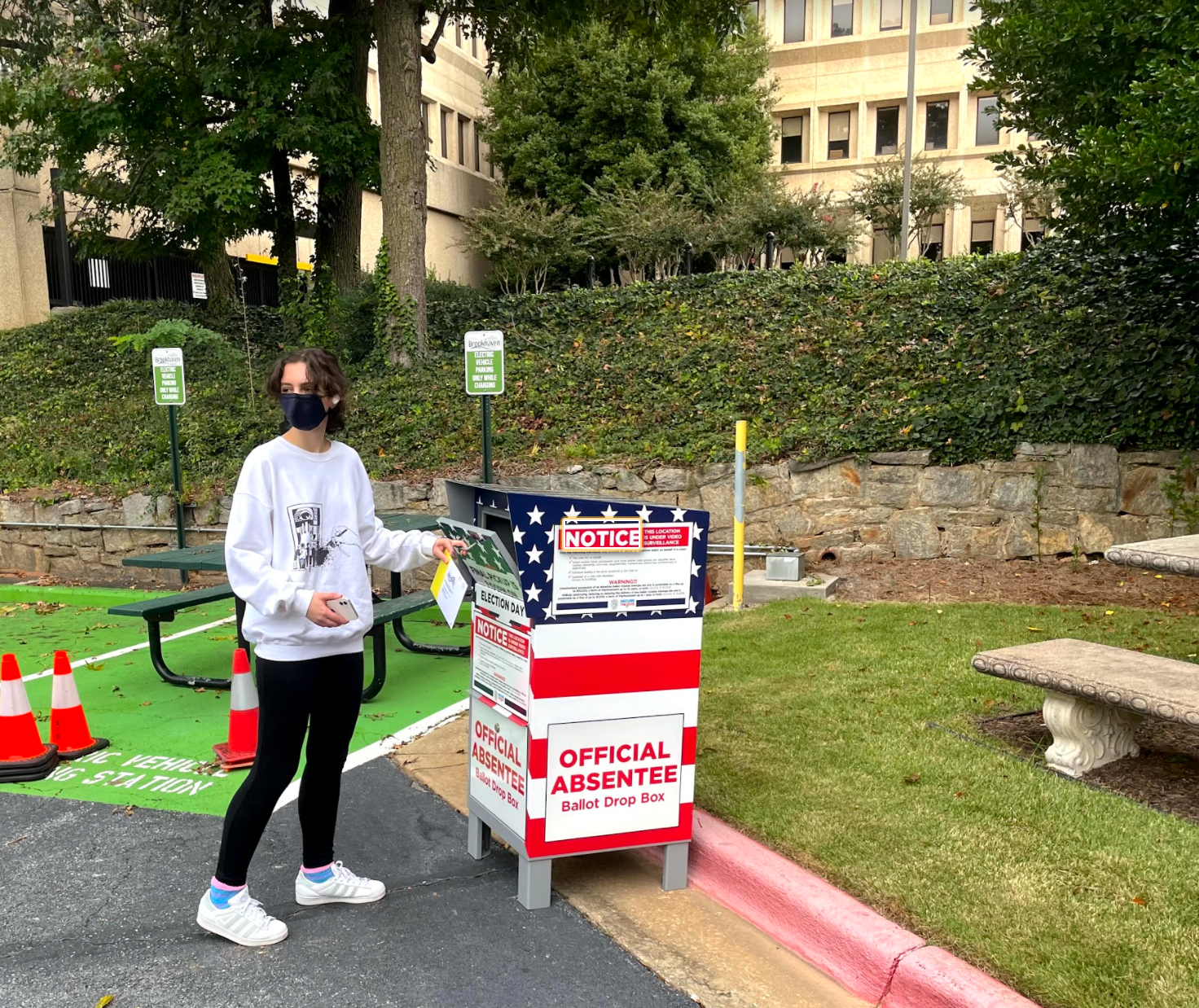
Following the surprise of Chamblee’s football success came an event universally foreseen…and dreaded: the 2020 presidential election, where Georgia historically painted itself blue, thus securing Democrat Joe Biden’s win.
A handful of CCHS students played a role in this unexpected turn of events and recalled the debilitating anxiety that plagued the election week.
“My family voted early so we didn’t have to do anything in November,” said Bradford. “We were all anxiously awaiting. Lots and lots of news watching. My ability to do school has kind of decreased since November, I would say, and that week was one of the weeks where I was just kind of like, ‘I’m having trouble doing school because there’s so much other stuff going on.’”
“I did vote. I went with my family, and we all went together and early-voted for Biden, of course,” said Hassan. “I definitely was anxious because the country is crazy, and you know, Trump won four years ago. So like, why wouldn’t he win now? So that was kind of just on my mind the whole time. […] I don’t like the way [Trump] handled the pandemic and the protests and riots. […] I still have anxiety about it. It was weird [and] really frustrating how close it was with the results. It was really exciting that Joe Biden won, [but] I was more so excited that Trump was out of office.”
Although Hassan did cast her ballot for Biden, her take on his platform is far more nuanced.
“I am not for Biden at all,” said Hassan. “When the primaries were happening, I was like, ‘I’m never voting for this guy.’ […] I feel like there should just be more emphasis on the fact that like, we have a [real] politician [now] rather than it being Biden specifically.”
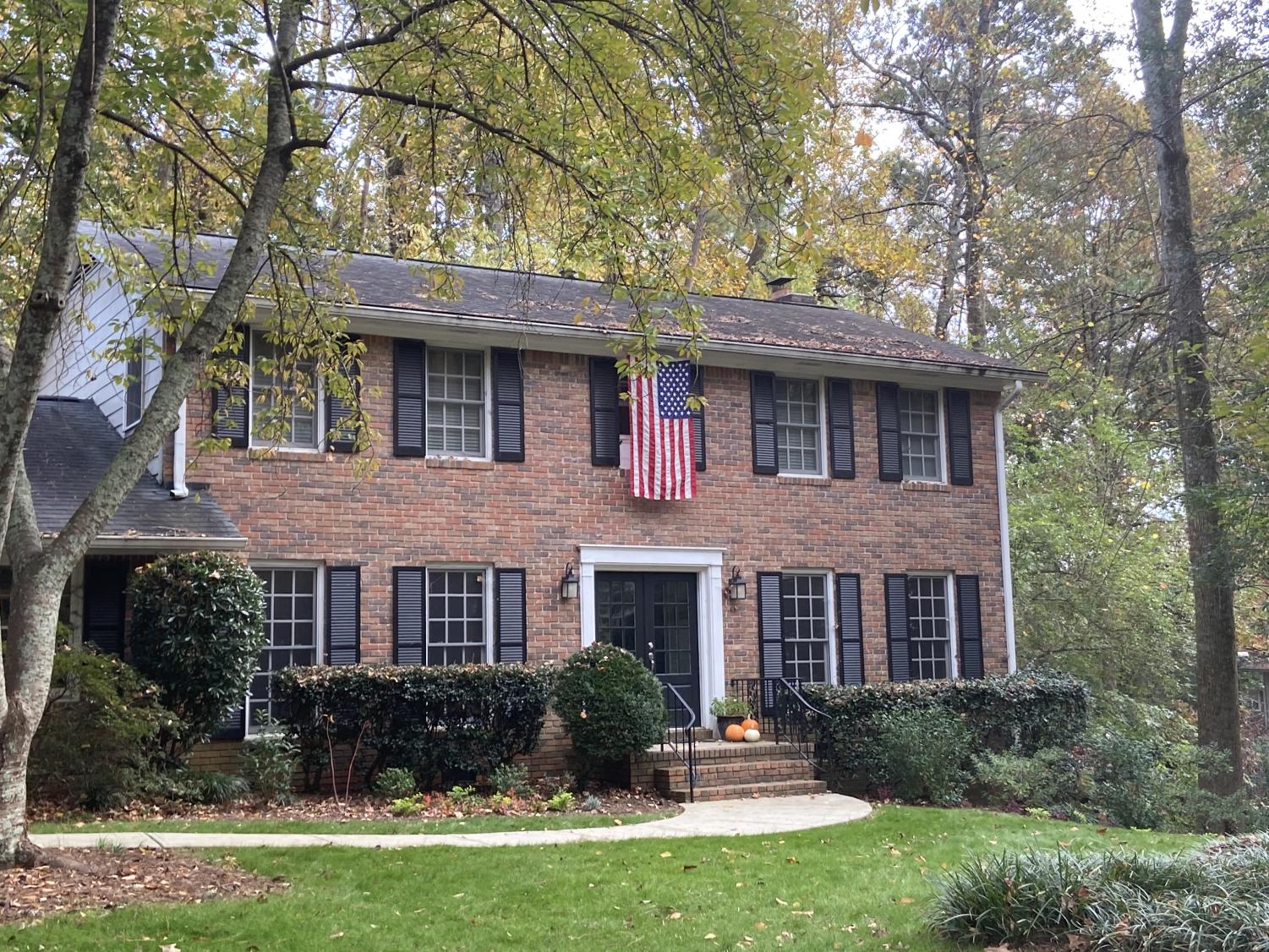
Hassan, already a freshman at Georgia State University, was old enough to vote, along with current seniors who were born before November 3. The majority of Chamblee students, however, were too young to participate in the election, but this did not stop them from getting involved in the political process.
“I just made sure my family voted,” said Sharpe. “I called like, each of my uncles, and I was just like, ‘You better make sure you vote!’ They were all, ‘We’re like, not voting.’ They haven’t voted for like the past couple years or so, […] but I was just like, ‘Y’all better do it,’ and they weren’t planning on it either, so like the fact that they did [vote] was great.”
“I went with my mom,” said Michel. “And it did feel like we were making a change, and I kind of felt like, ‘Oh my god, like, this could actually impact the whole country. This one vote really could.’”
Meanwhile, Hairston saw the election as more of a one-and-done procedure.
“We voted for Biden, and then we were all just ecstatic when we saw that he won, but after that, we just kind of put it away. For now at least, until he’s actually in office, we’re not really gonna talk much about it because there’s nothing to go off of while he’s not active,” Hairston said.
Ironically, Hairston’s words proved to be anything but prophetic. Trump would continue to challenge election results in a series of unsuccessful lawsuits, even going so far as to incite riots in Washington, DC, which escalated to the storming of the Capitol building on January 6, 2021—the day that Congress confirmed Biden’s win.
An in-Person 2021?
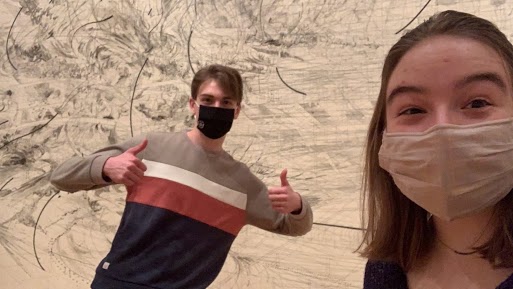
2021’s debut poses the pivotal question: will DeKalb’s school reopening plan (which is now based on the county’s RT-PCR test positivity rates of the last 14 days) commence? And if so, would Chamblee students choose to attend in-person learning during the plan’s second phase?
“The cases haven’t really gotten much better,” said Bosselmann, who is hesitant about the ordeal. “I feel like it’ll still be the same thing where it’s like, there’ll be half the kids in school and half on Zoom, and we’ll just have to be in class, and you’re actually on the Zoom and it’s like, I don’t know—I don’t feel like it’s worth it.”
“Being at home all the time is really tough, but in-person classes would make the learning experience worse,” said Antinozzi, echoing Bosselmann’s concerns about teaching. “Teachers will have to teach to the in-person class and online.”
On the other hand, Michel finds herself yearning for the social aspect of school, especially now that she is a senior.
“I think the only reason I would go to school is probably for like, senior activities,” she said. “But I definitely wouldn’t go for actual instruction just because I don’t think I can do 8:00 to 3:20 again. Like, that’s gonna be a hard transition.”
Other students are more skeptical, especially when it comes to DeKalb’s potential handling of the situation.
“I don’t trust DeKalb County to make sure I’m still safe at school. And I still have to ride the bus and all that, so I definitely don’t think that’s safe,” said Beckford.
“I would go only if the school had a safe plan for the students,” said Hall. “I’ve seen how reopening has gone for other schools, and none of them have looked too promising.”
“Even if school did open up, I’m sure cases would go up again,” said Esha Pamidi (‘21).
Meanwhile, some are vehemently opposed to returning to in-person learning, seeing it as a necessary sacrifice for the safety of others.
“Although I’d love to have a real senior year and see all my classmates, I would stay at home,” said Mogilski. “I don’t trust everyone to stay healthy and wear masks, and I certainly am not going to get my extended family sick because I want a senior year. It’s not ideal, but the smartest choice is to stay safe.”
“I would not return to school because I think the less people in school, the better,” said Olivia Mitchell (‘22). “And I want to save that space for like, people that really need to go back. I think it’s honestly kind of selfish for people to take up that space.”
“I think I probably wouldn’t [either], just because [of] my little sister. I don’t want to risk her getting sick,” said Young.
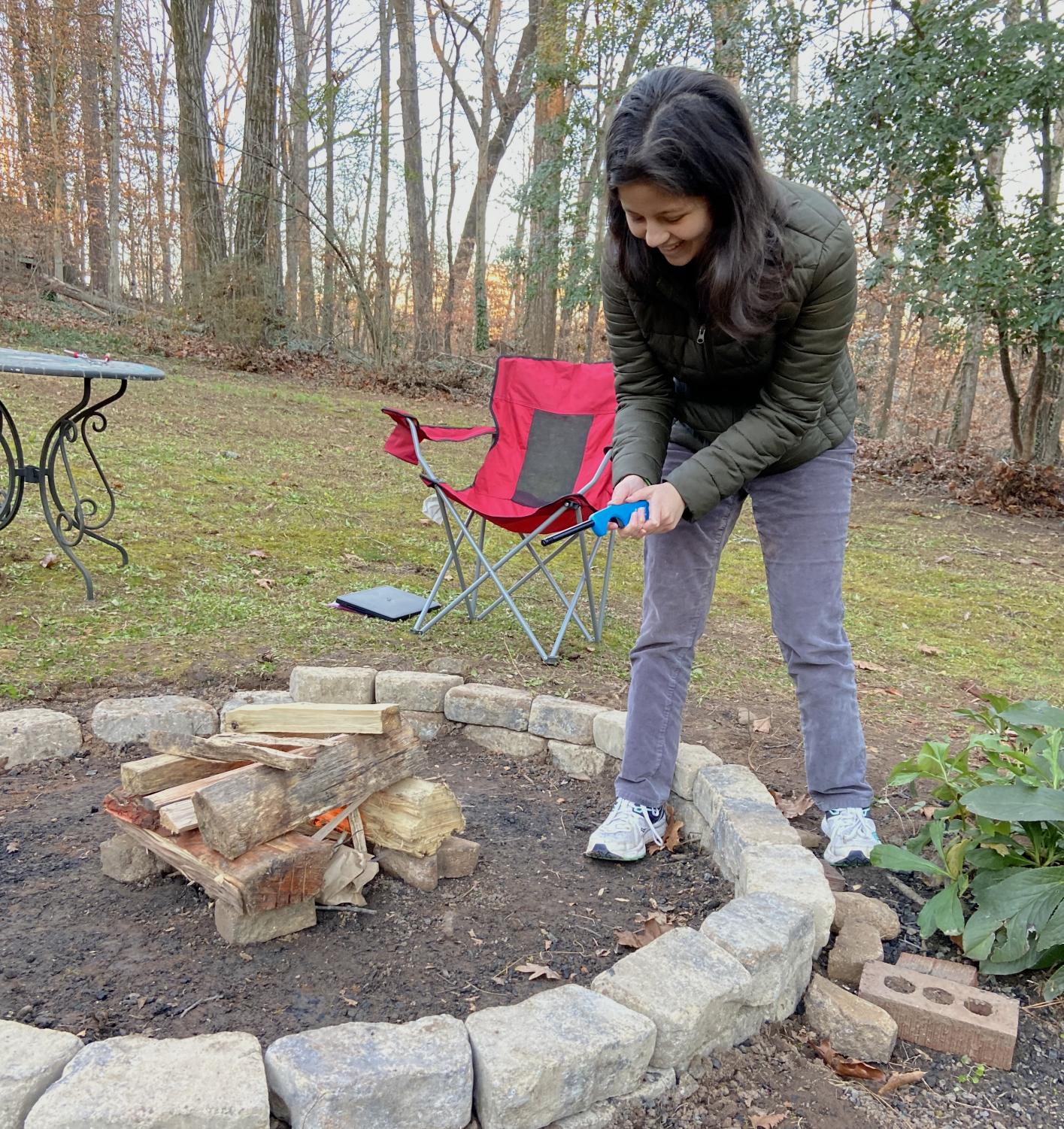
Students like Williams and Bradford, however, are on the fence—especially when it comes to the prospective accessibility of the Moderna and Pfizer vaccines, as well as the severity of COVID-19 itself.
“My corona anxiety comes like, literally in waves and then sometimes I’ll be like, ‘Yeah, no, I’m fine. Like, nothing’s ever going to happen to me.’ But then some other times I’m like, ‘No! I need to do these things. School is so stressful.’” said Bradford. “I can’t go in real life because they’ll give me coronavirus and my whole family will die. So it’s definitely in waves, but right now, it just doesn’t sound like something I would enjoy.”
“I guess it would depend. Number one, is there gonna be a vaccine for the next year? And what are my parents’ thoughts on it?” said Williams. “Like I’m sure, my parents would actually want me to leave, [but they would make sure] for a fact that we were going to be safe, whether there was something to prevent us from getting sick. So that’s a big maybe.”
Russell is leaning towards returning but is not entirely committed yet.
“I would probably go back,” he said. “I mean, just ‘cause I live so close to the school. […] I can just walk to school, but also like, it also depends on if it’s hybrid and then like, if it’s after they come out with the vaccine and whatnot.”
Although Russell isn’t wholeheartedly sure in his decision, there are students (albeit a minority) that would definitively return to Chamblee when given the chance.
“I would gladly go back to school because I personally need that kind of structure in my life,” said Dyer. “I think the majority of students should do it too. It would help with struggles about motivation, and I think interacting with the teachers and other students would help.”
“I think I am going to [as well] because I’ve been cooped up in the house for so long with my family,” said Gabriella Mayes (‘24). “My parents just kind of need a break.”
Ariel Raggs (‘21) echoes Mayes’s sentiment: her parents are looking forward to Chamblee’s reopening for the same reason. But despite this, Raggs is not too keen on the idea of returning.
“I’d get sent to school,” she said. “My mom is tired of us being in the house—I know that for a fact. But I personally would prefer to continue virtual school, because I don’t want to get up and go to school, and also, I’m not trying to get a disease.”
“Not trying to get a disease” is a prevalent mindset among those set on staying home.
“I am staying online. I don’t want to risk my life,” said Muhammad Ifaz Rahman (‘23). “Winter is [here], so coronavirus is going to spread very fast again. Back in 2019, it was in winter, so it spread very fast. So I’m going to stay online and see what happens.”
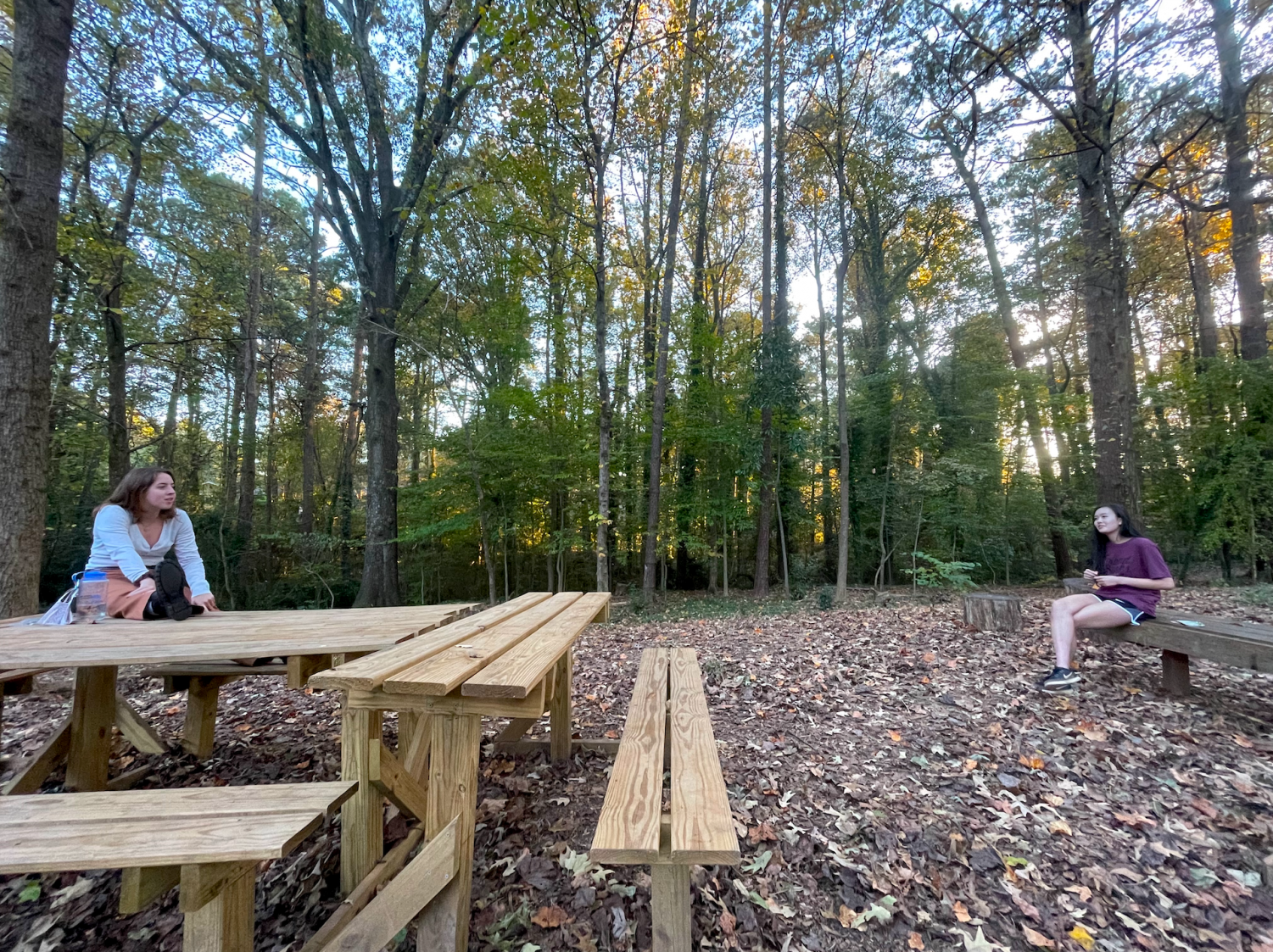
“I would stay home until everything can function as normal,” said Hairston. “Like, I can go outside, I can go to the mall, I can go to the store. Until I don’t have to wear a mask or social distance and all that. Everything needs to be normal for me to go back to school ‘cause school is important—but so is my health.”
Choosing between having a conventional learning experience versus avoiding a virus that still has under-researched effects is tricky, especially for freshmen like Shi, who have been blindsided by their rocky transition to high school.
“I have mixed feelings. On one hand, I would definitely want to go back, especially just to at least have some type of relationship with my teachers, to see them in person, and to see my classmates,” said Shi. “But at the same time, I think right now, the risk of getting the virus is still a little high, with that many people in the same building. Social distancing, it only works to some extent. If I have friends in a class, I’m not going to be standing six feet apart and talking to them. So I’ll inevitably be closer to some people. […] I wouldn’t say I’m super worried about myself getting it, but my parents and my grandma, they’re all high risk, right? So I don’t want to risk maybe infecting them. And I also heard that there are heart problems. I think 30% of people who get that virus actually have long-lasting heart problems, which as an athlete, that’s pretty scary as well.”
In the meantime, Hassan’s experience at Georgia State has shown her that in order for in-person learning to work during a pandemic, everyone has to abide by the rules—something that seldom occurs.
“I think it’s great that they want to give that opportunity to people, but at the end of the day you can’t really trust everyone. You can’t trust college students,” said Hassan. “Unless you’re a scientist, I probably don’t trust you. It is cool that [colleges] provide free testing, and they encourage you to get tested. That’s definitely great. But there’s definitely still people that like going to bars.”
“I would stay home,” said Satish, influenced by a similar lack of trust in her peers. “No matter what, kids are gross.”
Looking Back with 2020 Vision
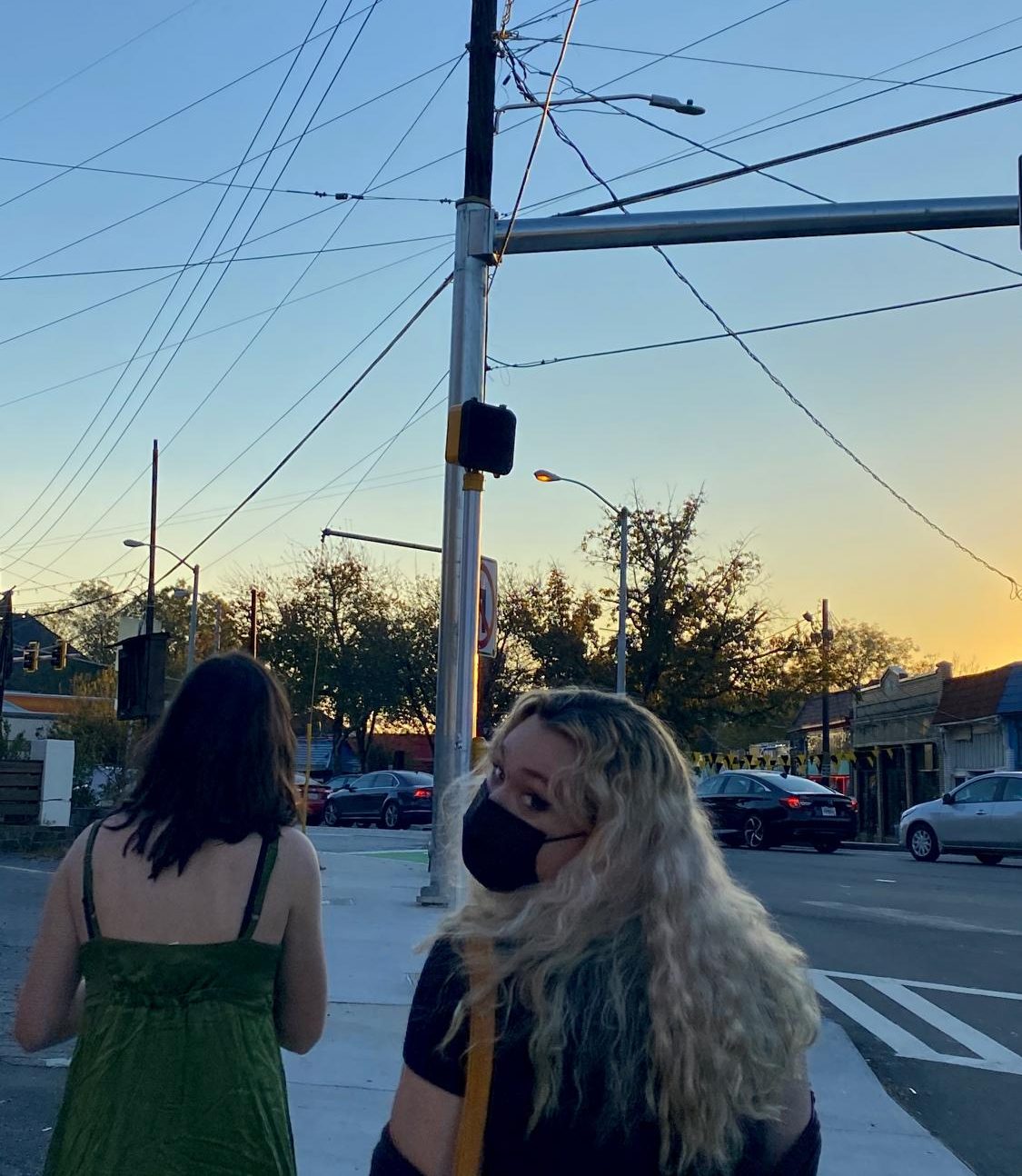
“Life is unpredictable,” said Satish.
That, it is—evident in 2020’s downward spiral of wildfires, ‘World War III’ rumors, celebrity deaths, mass-scale disease, police brutality, killer wasps, the Tampa Bay Lightning winning the Stanley Cup, and declassified UFO documents—just to name a mere few.
Yet 2020’s turbulence was not without its teaching moments.
“I learned how to make brownies and bread from scratch,” said Lim, referring to the ubiquitous baking trend that was spurred on as a result of quarantine isolation.
Others were put on the path towards self-actualization.
“2020 has taught me to be unapologetically myself,” said Louis-Ugbo. “When we go back to school, I know for one thing, I’m not going to be ashamed of what I like or what I listen to or whatever.”
“That’s also a big thing for me,” said Russell in agreement. “You know, always worrying about what I’m going to wear. Like, ain’t nobody going to see me in Zoom classes. So, I mean, it’s pretty cool, not having to worry about that. […] Kind of the basic thing that I’ve learned is that everything has a silver lining. Even if it’s bad, there’s probably some way that you could twist it, you know? Some good thing that’s come out of it.”
This silver lining often manifests itself in the form of persistence.
“I learned that I am more optimistic than I realized,” said Raggs. “When we first got out of school, I was like, ‘We have to keep training [for track]. Region’s coming up. State’s coming up. We have to be ready if they open the school.’ I was sitting there saying, ‘We are going to keep training. You never know.’ I was so insistent on training up until the day of state because I needed it.”
In the meantime, some students realized that being consumed by their academics was detrimental to their well-being and that in moderation, living day-to-day was a necessity.
“Midway around like tenth grade, I got kind of consumed with the whole idea of my future,” said Sharpe. “Then in quarantine, for the first month or so, I was really just always on my phone because I really didn’t remember what I liked and didn’t like because I didn’t make enough time for my hobbies. But now I’ve just been really trying to figure out what I like.”
“Last year, I did a lot of stuff, like I went to trunk-or-treat. I did Friendsgiving. I probably went to every single football game and basketball game,” said Michel, who found that living day-to-day supplied her with much-needed memories. “I went on trips and college tours. So, I did all that not thinking anything like this would happen, but I just did it to enjoy. And I’m so glad I didn’t take that time and those memories for granted. I just lived in those moments because now that I’m just trapped, I don’t feel like what I’ve done my whole high school career [is] coming to an end. I’ll [probably] never go to high school, use a locker, or go to a school dance again, [but] now, I have those memories to go back on.”
“I had more fun,” said Bradford. “Because I appreciated the things that I was doing more because I was doing less things overall.”
In terms of worldwide issues, 2020’s upheaval of social customs and exposing of antiquated institutions opened students’ eyes to the possibilities of impending change.
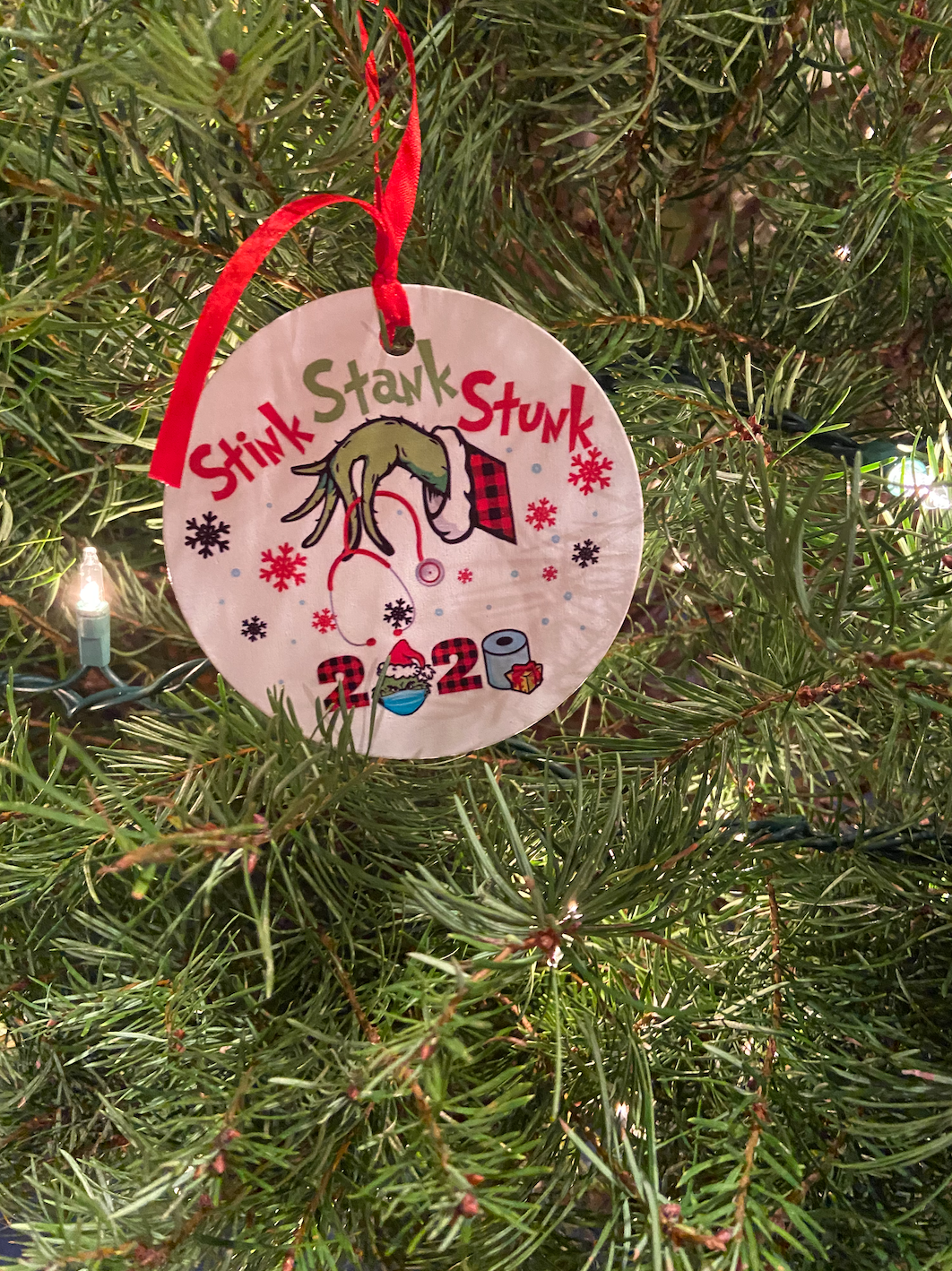
“Our individual actions have very real consequences, and health, both individual and global, is crucial,” said Shi. “Pandemic aside, I’ve also discovered how ignorant I am when it comes to prevalent issues we face, such as racism.”
“I feel like 2020 has helped people see problems for real, open their eyes and be like, ‘Oh, this is what I was missing and not paying attention [to].’ […] I feel like people learning about how police and police systems really bastardize stuff is really important,” said Hassan. “It’s kind of weird because we’re all in this floating space of ‘we don’t know what our futures will be,’ especially for us young people and like, people going to college. Our futures are literally getting taken and mutated because of this pandemic.”
With a precarious future in mind, decisiveness is not optional, especially when it comes to maintaining healthy, nontoxic relationships with others.
“2020 taught me not to waste time on people or things that don’t bring me joy. There’s just no point,” said Mogilski.
“It’s taught me to weed out those who are fake and find those who are legit,” said Hairston.
“When college first started, […] seeing people that I care about getting COVID and going home and then going back to college and still partying and going to bars, that was something really frustrating to see,” said Hassan. “Because they’re people I care about and trust, so it was like, ‘Whoa, these people don’t care. Like, this is weird.’ […] People don’t [always] think about others.”
Anna Beth Blankenship (‘22) puts it succinctly.
“Don’t trust anyone,” she said.
But for students still recovering from the stupor of, arguably, the most bewildering year of their lives, 2020’s teachings were as incomprehensible as…well, the year itself.
“I think that 2020 has taught me that…it’s, um…bro, I haven’t learned anything,” said Dawadi. “I’m gonna be straight with you here. I have learned nothing this year. This has been a lost year for me.”
A lost year, maybe. But a memorable one? Unequivocally, yes—in every sense of the word.


